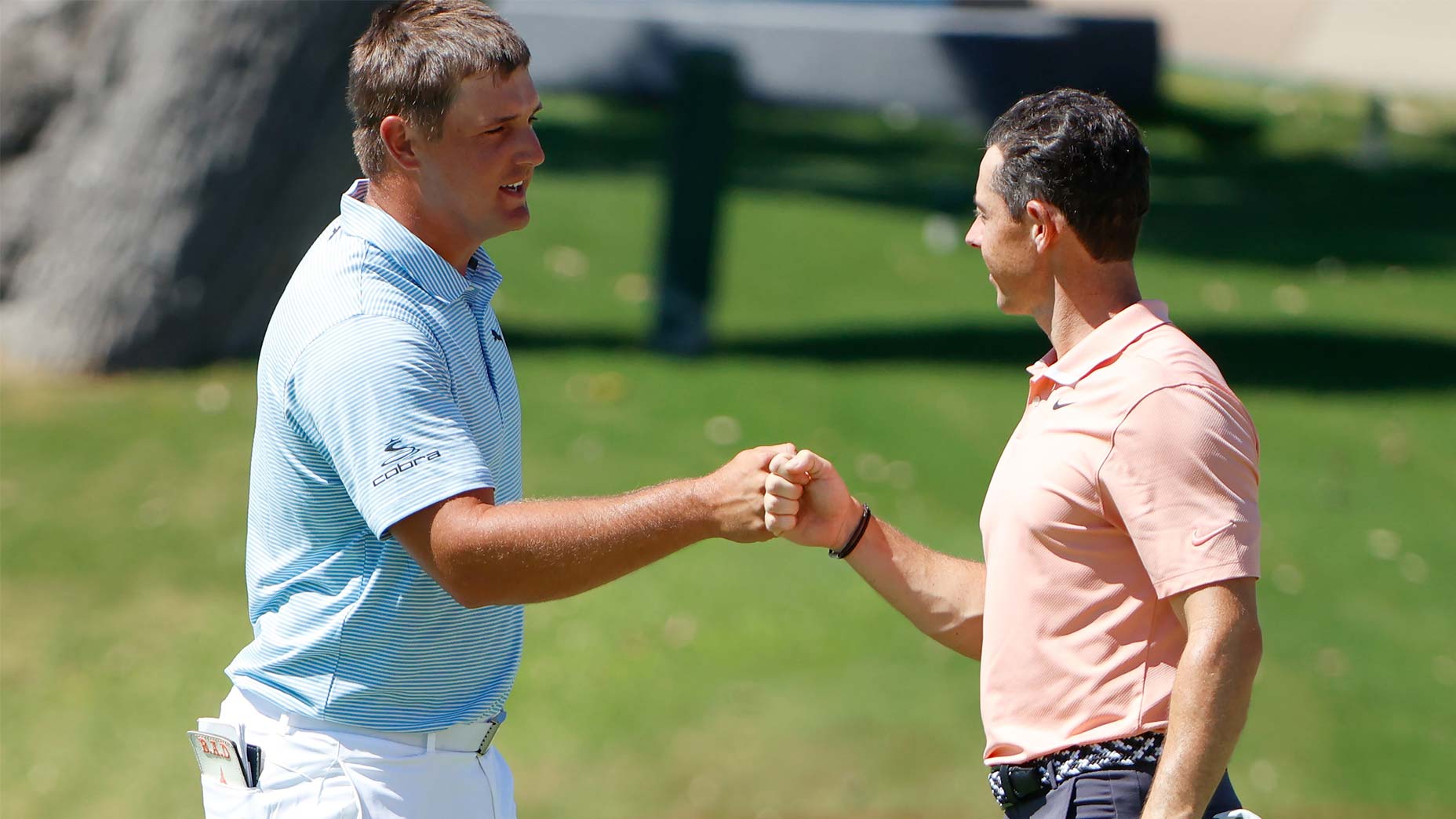Bryson DeChambeau’s U.S. Open victory at Winged Foot marked a groundswell moment for his professional life. DeChambeau was vindicated for the world to see on Sunday, capturing his first major win at the national championship less than a year after sacrificing body, diet and swing in pursuit of more distance. And he was vindicated in convincing fashion — a six-stroke victory in which he was the lone golfer to finish below par.
That he did so while hitting only 23 of 56 fairways for the week, the fewest of any Open winner since 1981, speaks to a different kind of groundswell. The kind afforded by sheer power and the execution of a strategy that for the moment appears setup-proof. After all, Bryson claimed his first major not on the wide fairways and neatly trimmed second cut of Augusta National, nor on TPC Harding Park’s benign contours, but on one of the game’s iconic designs in its most penal conditions.
So, what does DeChambeau’s win say about the efficacy of his approach in golf today?
“So I think — about the guy, I think it’s brilliant, but I think he’s taken advantage of where the game is at the minute,” Rory McIlroy said. “Look, again, whether that’s good or bad, but it’s just the way it is.”
McIlroy finished the week tied for 8th, his best result at the U.S. Open since Chambers Bay in 2015. His up-and-down week at Winged Foot ended unceremoniously with a Sunday 75, and he watched from the clubhouse as DeChambeau bested him by a dozen strokes.
“I don’t really know what to say because that’s just the complete opposite of what you think a U.S. Open champion does,” he said of DeChambeau. “Look, he’s found a way to do it. Whether that’s good or bad for the game, I don’t know, but it’s just — it’s not the way I saw this golf course being played or this tournament being played. It’s kind of hard to really wrap my head around it.”
But in fact, there may be no person better-equipped to discuss the subject of earth-shattering U.S. Open victories than McIlroy. It was nearly a decade ago that Rory had his own groundswell moment, smashing records and walloping the field en route to his first major championship victory at Congressional. That week, McIlroy won by eight strokes, set the 72-hole scoring record and became the youngest U.S. Open champion since Bobby Jones. The trophy ceremony wasn’t a trophy ceremony at all. It was a coronation for a 22-year-old who seemed poised the seize the golf world in a way no one had since Tiger Woods a decade earlier.
That was a different time, sure. A time before 375-yard drives and protein shakes. But if nostalgia was in the air Sunday, McIlroy hardly let on.
“With the way [DeChambeau] approaches it, with the arm-lock putting, with everything, it’s just where the game’s at right now,” he said. “I’m not saying that’s right or wrong. He’s just taking advantage of what we have right now.”
As he stretches past six years without a major championship victory, Rory’s mind heads to Augusta National — the same place many went mentally as Bryson tore through the toughest conditions we’ve seen all year. Augusta is McIlroy’s white whale, the last major championship in his pursuit of a career grand slam.
But his legacy has faded to the periphery, at least for now. On Sunday, the Masters became DeChambeau’s tournament to lose.
“I don’t shudder, but if he can do it around here, and I’m thinking of Augusta and thinking of the way you sort of play there,” McIlroy said. “I stood up here a few weeks ago and said the game’s moved on a lot in the last 14 years since the U.S. Open’s been played here, and you’re seeing what the game has become, what he’s doing out there.”
